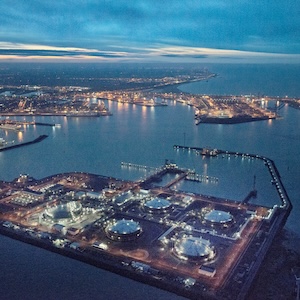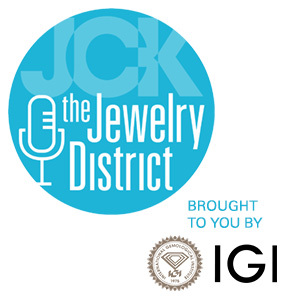
The European Union’s sanctions on Russian diamonds, which began March 1, are causing “severe disruptions” for companies trying to import goods into Belgium, according to a letter to the Antwerp World Diamond Centre (AWDC) signed by more than 100 Antwerp diamond businesses.
The delays are “resulting in significant increase in expenses and irreplaceable loss of business,” said the letter, dated March 13. “We are failing to meet our customer orders, and having to fund excess blocked inventory.
“Despite earlier assurances that shipments would be cleared in under 24 hours, even straightforward cases are held up for over a week,” it continued. “The Diamond Office staff, with whom we empathize, are also clearly overwhelmed with the lack of clarity and what is expected of them.”
Delays are affecting not only goods covered by sanctions but diamonds under half a carat, and beneificiated goods, all of which are supposed to be exempt from current rules, the letter said.
The letter concluded: “We share the goals and the spirit of the sanctions but object to this cumbersome, ineffective, and inefficient execution. The current trajectory threatens the existence of Antwerp’s diamond industry, a heritage of six centuries.”
On March 1, all G7 nations and the European Union implemented new procedures aimed at keeping Russian diamond imports out of their markets—but the EU’s were considered the strictest.
Antwerp World Diamond Centre CEO Ari Epstein sent out a note March 14 stating that his group is “acutely aware of the challenges and disruptions” the new rules have caused.
Epstein wrote that Belgium’s government has provided repeated assurances that “shipments with proper documentation will be expedited within 24 hours. To facilitate this, we are prioritizing the processing of correct declarations over the usual first-come, first-served system. This adjustment aims to streamline procedures and reduce waiting times for compliant shipments.”
He also said the AWDC’s “dialogue with the government is ongoing, particularly concerning finding expedient solutions for grandfathered goods in Belgium…. I cannot stress enough the depth of our commitment to supporting our community through these changes.”
The sanctions’ so-called sunrise period, which runs through Aug. 31, has been billed as a test for the Antwerp-based certification system favored by the European Union.
In a statement, De Beers said it “sympathizes” with diamond companies whose goods are being held up.
“While we fully support the G7’s intentions to prohibit the import of Russian diamonds, we believe that ethical African diamond producers should maintain the right to certify their own diamonds as non-Russian, and that the G7 should work to strengthen the globally respected government-run system that ethical producers have developed,” De Beers said. “Our concerns over a single rough import node in Antwerp have always been that it risks creating unintended consequences, such as supply bottlenecks and additional costs for the responsible, non-Russian diamond trade.”
(Photo courtesy of the Port of Antwerp-Bruges)
- Subscribe to the JCK News Daily
- Subscribe to the JCK Special Report
- Follow JCK on Instagram: @jckmagazine
- Follow JCK on X: @jckmagazine
- Follow JCK on Facebook: @jckmagazine






